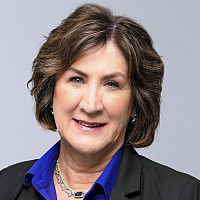Connection and Rural Health Nursing: Laurie Anne Ferguson and the School of Nursing at Emory & Henry College
“Connection and communication are critical to improving healthcare,” said Ferguson, highlighting the core of her interest in the health literacy of patients, the education of students in the College’s new School of Nursing program and her recently published, co-authored book, “Rural Health Nursing: Barriers and Benefits.” Authored alongside Dr. Kenneth Lowrance, retired professor of professional practice within the Harris College of Nursing and Health Science at Texas Christian University and a foreword written by Emory & Henry School of Nursing faculty Drs. Farmer and Wexler, “Rural Health Nursing: Barriers and Benefits” covers a variety of topics across 16 chapters. All but two of those chapters are curated pieces written by other healthcare professionals on the topic of rural nursing and the distinct challenges that rural nursing can pose. The text is broken into 16 chapters with teaching in mind. Nursing educators at the College can use Ferguson and Lowrance’s text as a full semester resource to teach from at the pace of one chapter per week.

Ferguson has the opportunity to set the tone of Emory & Henry College’s School of Nursing as the founding dean. With that opportunity, Ferguson dedicated herself to establishing a curriculum emphasis on population health in rural communities. Ferguson assuaged any fears that nurses who pursue a career at Emory & Henry College may be pigeonholed into working exclusively in rural settings. “Rural care skills can translate into underserved and urban care,” she said. Both rural and underserved urban areas suffer from being Health Professional Shortage Areas (HPSA).
In addition to the challenges that being an HPSA region places on healthcare is that of the digital divide. Ferguson’s curriculum emphasis addresses many of the health literacy and healthcare staff fears of working around potentially unreachable medical databases and digital resources because of poor regional digital infrastructure. “It is challenging to recruit healthcare professionals to rural communities without access to supportive resources,” Ferguson said about the issues that the digital divide healthcare professionals in rural areas need to contend with.
According to the National Academies of Science Engineering Medicine, formerly the Institute of Medicine, a national need for nursing staff is going to continue to grow until 2030 as prior generations of nurses age out of the workforce and into retirement. With the College’s new School of Nursing headed up by founding dean Ferguson, Emory & Henry College will equip nursing graduates to handle the regional shortages from both the wave of nurses who are projected to be retiring by 2030, working in an HPSA and contending with the challenges that the digital divide provides.
Open gallery

